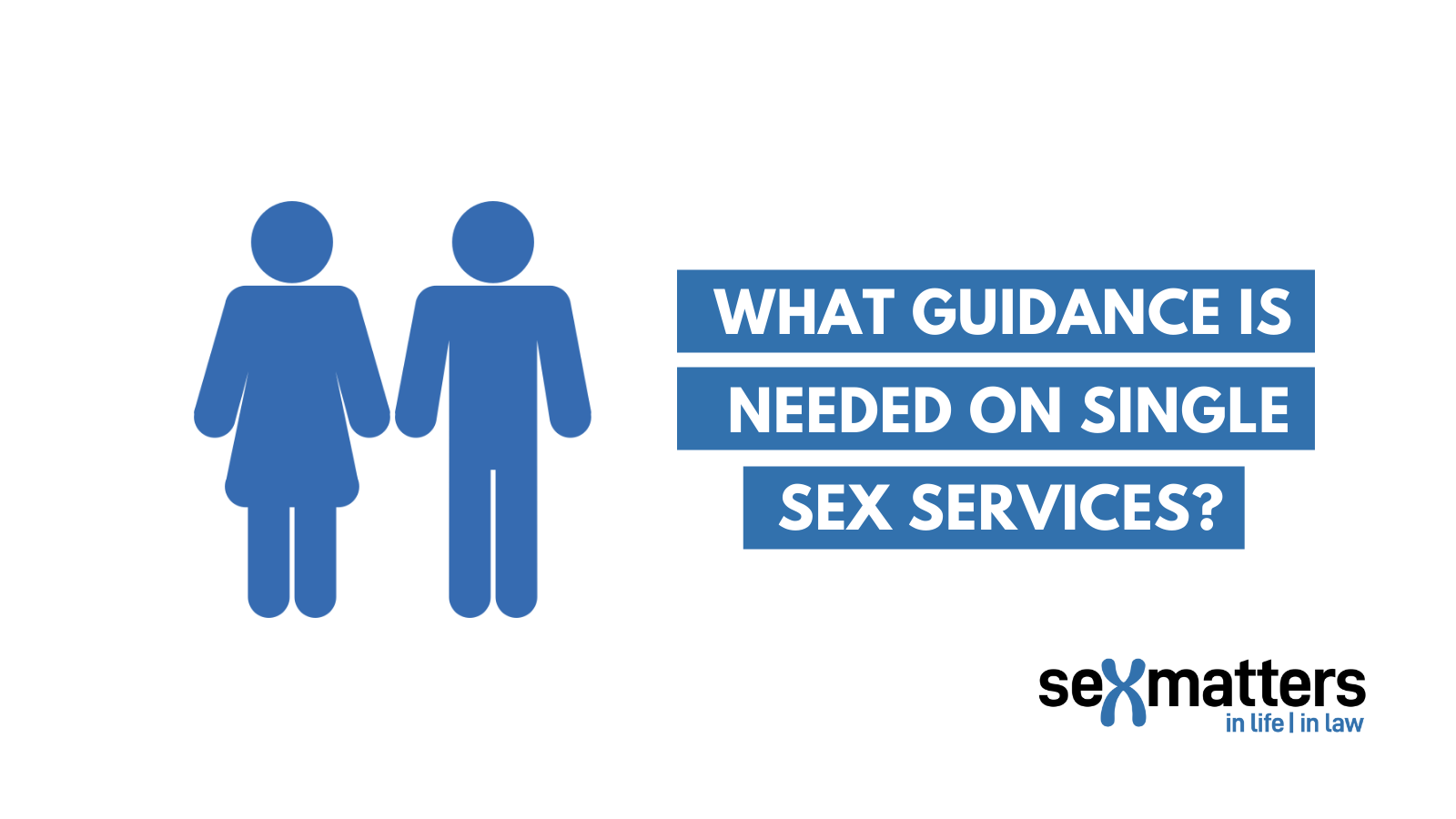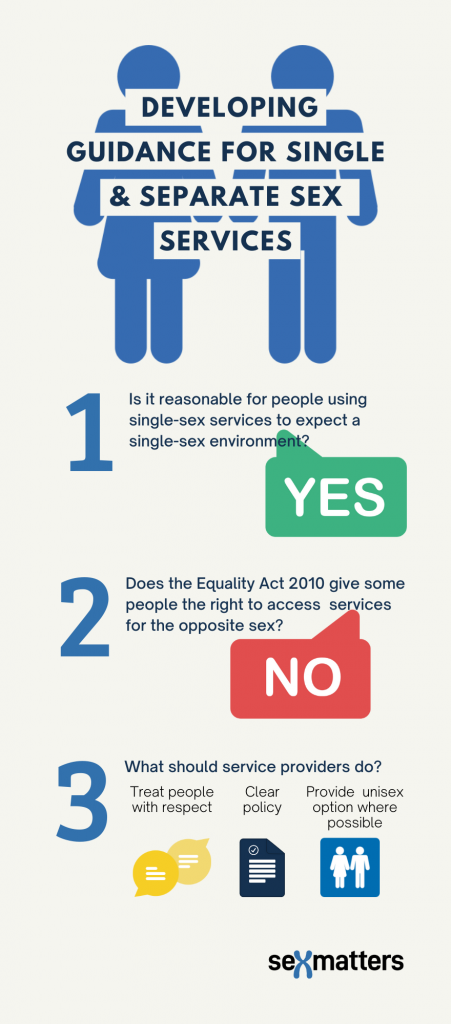Principles for clarity and respect

The Equality and Human Rights Commission (EHRC) is planning to release new guidance on single-sex services imminently.
To support this Sex Matters is publishing two briefings. The first one sets out principles for clarity and respect for single-sex services.
From everyday facilities such as toilets and changing rooms to specialist services like women’s refuges, service providers and users need clarity. Misunderstanding and confusion fuel conflict and expose people to uncertainty, hostility and potential discrimination. Individual “case-by-case” assessment is neither legally defensible nor practical. It is not fair on anyone.
We think the EHRC guidance has to answer three simple questions, simply:

The guidance that the EHRC produces needs to be simple, workable and clear: it is routine, lawful and unexceptionable to provide single-sex services. This means that members of the opposite sex are not admitted.
Our briefing sets out ten principles which underpin this:
The ten principles
- The interpretation of words across the Equality Act 2010 should be coherent.
- The provision of single-sex and separate-sex facilities is widespread and ordinary: it should not be made difficult or ambiguous for service providers or users.
- Organisations need to be able to have policies. It is the legality of the policies that is tested against the Equality Act 2010.
- “Passing” is not a criterion that works for trans people. It cannot be put in an implementable policy; it invites invidious and humiliating assessments; and it discriminates against trans people who do not pass.
- People who do not believe in gender ideology should not be harassed, discriminated against or forced to share what they have been led to believe is a same-sex facility with members of the opposite sex.
- A person’s sex is not sensitive information.
- In practice, policies are often enforced on the basis of perceived sex. This does not mean that clear rules are not justified.
- Allowing people to access opposite-sex services exposes them to the justified shock and embarrassment of, and a risk of hostility from, other users.
- “Trans rights are privacy rights” – Everyone has the limited right not to have to declare or answer questions about their sex (or other personal information) when it doesn’t matter. Single-sex services are places where sex matters.
- Organisations are obliged to consider trans people’s rights, not their desires.
Read the briefing now:
